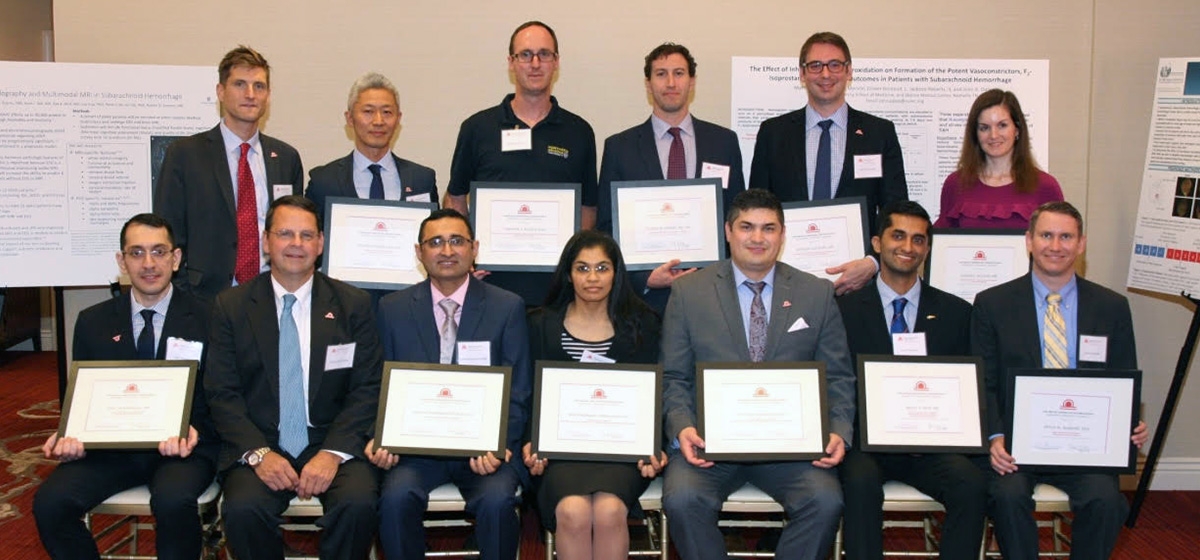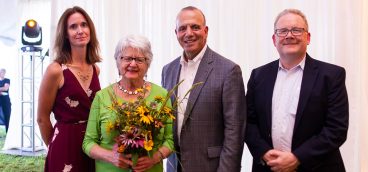Pittsburgh Native, CNBC’s Epperson Raises Money, Awareness

CNBC Senior Personal Finance Correspondent Sharon Epperson reminded attendees of the Brain Aneurysm Foundation’s 12th Annual Research Grant Symposium to always remain “present, mindful, and grateful” in their daily lives.
[ngg src=”galleries” ids=”274″ display=”basic_thumbnail” thumbnail_crop=”0″]
Epperson, a brain aneurysm survivor, captivated a full house with her inspirational story of recovery, perseverance, and advocacy. She drew an audience of researchers and medical professionals as well as local fans, friends and family as she returned to her hometown last week at the Renaissance Pittsburgh Hotel.
This year, the Brain Aneurysm Foundation (BAF) awarded $500,000 to 14 different research projects to be completed at various institutions across the U.S. and Canada. The majority of the grants funded come from individuals and their families who have events to fund a Chair of Research in their or a loved one’s name.
“Despite the fact that 1 in 50 people have a brain aneurysm, the federal government only spends 83 cents per year on brain aneurysm research for each person afflicted,” said Christine Buckley, Executive Director of the Brain Aneurysm Foundation. “We are honored to award research grants that support a variety of brain aneurysm research. This research has potential to change the trajectory for brain aneurysm survivors.”
The highlight of the evening was when Epperson spoke to the standing-room-only crowd prior to awarding the first-ever Sharon Epperson Chair of Research, a $15,000 grant. The grant was awarded to renowned neurosurgeon and researcher Dr. Brian Hoh, chair of neurosurgery at the University of Florida. Dr. Hoh’s research team is researching the formation of brain aneurysms, as well as innovative tissue engineering technology to improve treatments. The grant was made possible by contributions to the BAF from Epperson’s employer, CNBC, as well as her friends and family.
On Sept. 21, 2016, Epperson suffered a hemorrhagic stroke from a ruptured brain aneurysm. After her exhaustive recovery, Epperson has become a staunch advocate for raising awareness and funding for brain aneurysm research. She has been able to weave her personal experience into her reporting, too, as she advises her audience to prepare their finances for the unexpected and to prioritize items such as assigning a power of attorney to handle medical and financial matters, having disability insurance and building emergency savings in case of an unplanned for medical event.
In her remarks, Epperson shared that her great-grandfather, grandfather and aunt, passed away after brain hemorrhages—although it was uncertain if either had experienced ruptured aneurysms. These were stories Epperson was largely unaware of in her life; however, she later learned family history is a large predetermining factor.
The event was hosted by Brian Jankowitz, MD, Assistant Professor of the Department of Neurological Surgery, Co-Director of Endovascular Therapy, and Director of the Neuroendovascular Fellowship Program at University of Pittsburgh Medical Center (UPMC), also a medical advisory board member of the foundation. The symposium brought together the best and brightest medical professionals who are working to improve early detection and treatment options for brain aneurysm disease, patients and their families, industry, and those who had lost a loved one.




